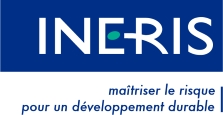The Biocopac project has several objectives: to reuse the processing by-products from the tomato industry, which are currently expensive to dispose of, and to develop a bio-based lacquer solution for coating metallic food containers, for which there is a very substantial market. Dr Angela Montanari, the project's coordinator at the Italian research centre Ssica in Parma, explains that BPA substitution was not one of the project's explicit initial objectives, but that it fits in with current regulatory changes, particularly in France.
Two patents are set to be filed in 2014, one concerning the extraction of cutin from tomato skin, and the other on the production of polyester resin from this bio-sourced polymer. Other chemical reactants are needed to synthesise the resin, to the extent that the lacquer was meant to consist of 70% bio-sourced reactants and 30% synthetic reactants. The studies conducted to date indicate that lacquers synthesised using cutin present similar properties to conventional epoxy resins and would be compatible with use in food tins. Other vegetables could also be used to provide the basic polyester for synthesising the resin, such as potatoes, for instance, which contain suberin.
The final cost of the packaging cannot be accurately assessed at present, but according to the industry players involved in the project, the finished product should not be any more expensive than packaging containing BPA. The project's leaders hope that metallic packaging made using this process will be available on the market within the next 2 years.
The durability of the resin and the packaging are currently being tested. The Ssica laboratory will assess the resin from a toxicological perspective, and in terms of potential compound migration, in order to ensure that it complies with the various national regulations in force in Europe. Industrial tests are planned between now and January 2014 at two tinned product manufacturers, including Saupiquet, a French tinned fish producer.
The Biocopac project, which began in 2012, is being conducted by a consortium of European businesses and research centres, and is part-funded by the European Union's 7th Framework Programme.
Find out more: http://www.biocopac.eu/en/
http://www.biocopac.eu/fotos/presentation/(1)%20BIOCOPAC%20Brochure.pdf

